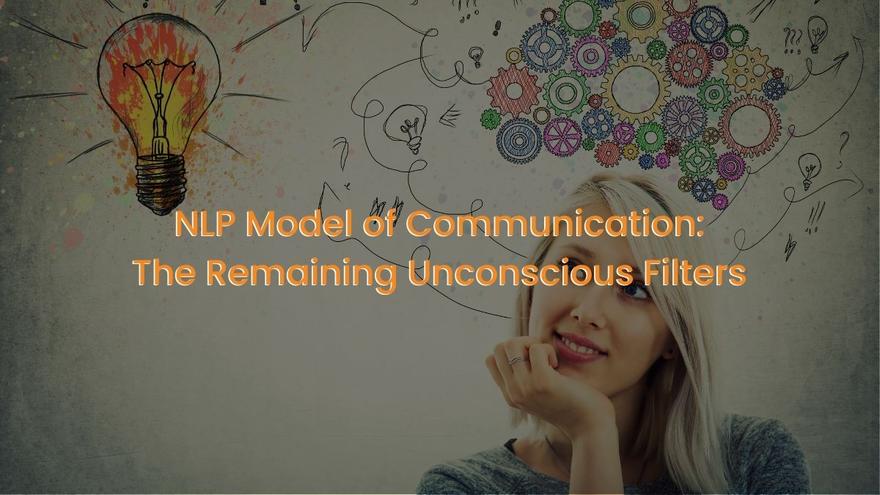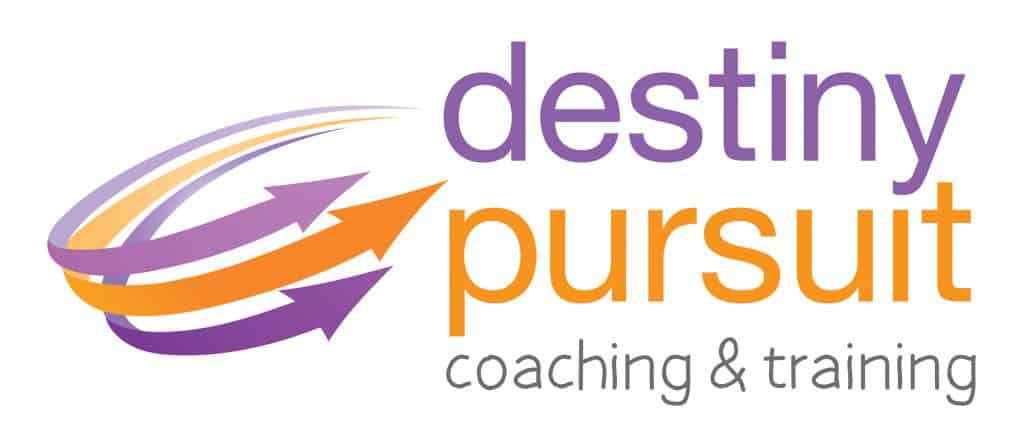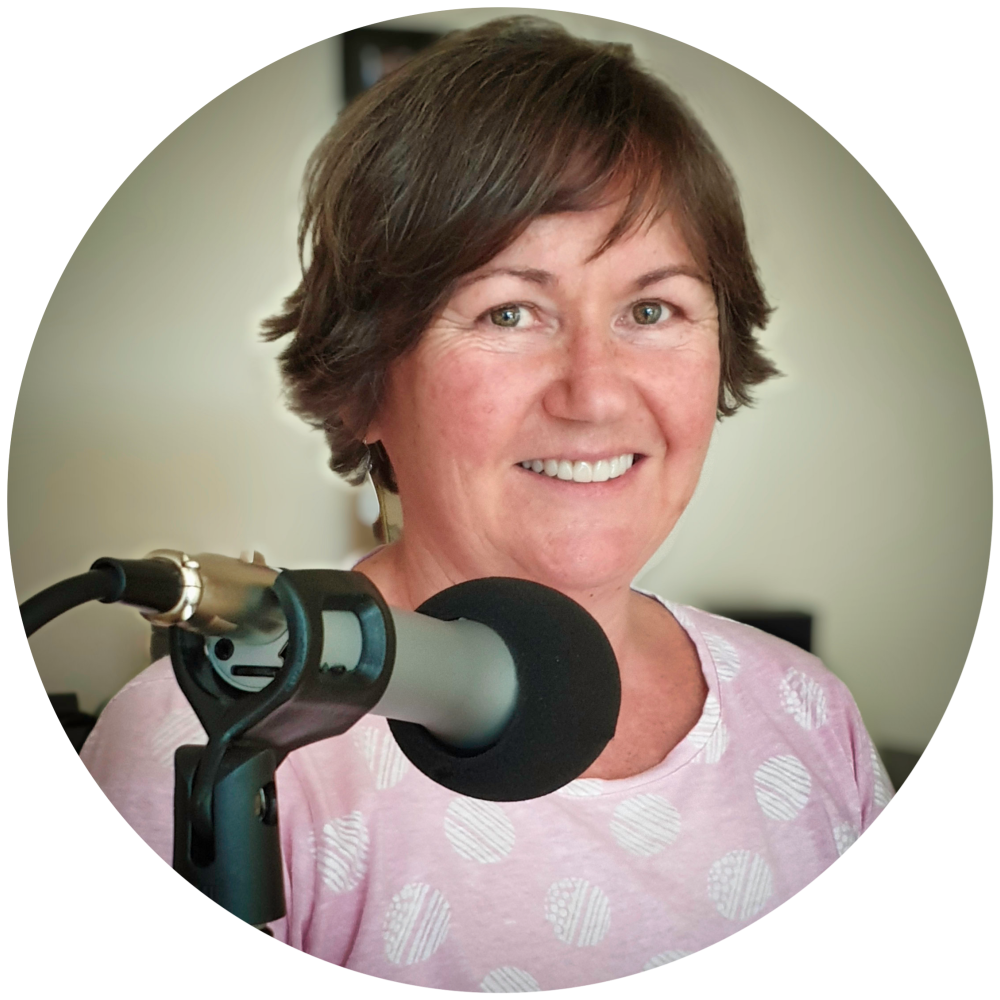The Remaining Unconscious Filters - NLP Matters, Episode #042

In the current season of NLP Matters, we have been talking about the NLP Model of Communication. This model encapsulates and integrates our physiological, psychological, and cognitive functioning as it explains how humans collect and process information through our 5 senses to make meaning and create our own map of reality.
In the last episode, we discussed the totally fascinating functioning of our 7 unconscious filters. Starting with– Time/Space/Matter/Energy, Language, and Memories. In this episode, we’ll be exploring another three filters - Decisions, Values and Beliefs, and Attitudes.
Let’s dive in!
Listen to the Podcast
Here are some key takeaways from this episode:
- A big part of choosing what we notice is determined by our amazingly efficient system of unconscious filters that continually operate in the background deleting, distorting, and generalising.
- Decisions form a powerful filter because quite simply our unconscious mind will focus attention on things, people, and events that align with decisions we have already made. Sometimes we are aware of the decisions we are using to filter information and sometimes we are not.
- When we make a decision, not only will we notice details in the environment that relate to that decision, but we will also tend to filter in the things that tell us that our decision is the right one.
- The need to be right is one of the primary needs of the ego. Once we have made a decision – we are very effective at coming up with reasons and justifications that confirm the decision we made was the right one.
- Confirmation Bias is our underlying tendency to notice, focus on, and give greater credence to evidence that fits with our existing decision.
- Values and Beliefs, like our decisions, are also powerful filters that guide us we delete, distort, and generalise information available in our environment.
- A belief is quite often a long-held decision.
- Beliefs determine how events are given meaning. They also provide the motivation and permission for our behaviour.
- When we hold a belief it means that we know something – and because we know it we also will generally assume that an alternative is not possible. This is how beliefs close off new possibilities.
- Being able to close off possibilities is an important strategy if we hope to be efficient and successful in our lives. Without this capability we would struggle to make change and choices, and move forward in our lives – rather we would be locked in a state of indecision, confusion, and possibly overwhelm.
- Our propensity to hang onto beliefs can also be limiting as it means we tend to delete information that contradicts our beliefs even when there is stark evidence that they need to change.
- Like beliefs, we most likely hold both conscious and unconscious values.
- Beliefs and values are intimately intertwined. Together they tell us why we are the way we are or why we do the things we do.
- Values are surrounded by a cluster of beliefs that usually connect into specific concrete behaviours or outcomes which we then perceive as evidence that we are successfully fulfilling our values.
- Beliefs and values differ in their level of specificity. Values are more general than beliefs.
- We tend to feel a sense of harmony, alignment, or congruence when we are acting in alignment with our values. In contrast, when we are not behaving or producing outcomes that meet our values we tend to feel out of sync, incongruent and dissatisfied.
- To identify our values we need to ask ourselves questions like – what is most important to you? What drives you? What do you really care/feel passionate about? What keeps you going when the going gets tough?
- There is no end to the possible values we may hold – values are simply an expression of what we hold dear in our lives.
- Different people holding the same values may behave in totally different ways yet both believe they are living in alignment with their values. This is where the power of deletion, distortion, and generalisation is blatantly evident.
- Our values are almost all locked and loaded very early in our lives.
- It is important to remember that we can make choices over the values and beliefs that we have. If we have values and associated beliefs that aren’t supporting or serving us, then we can change them.
- NLP includes many powerful tools that can be used to change our values, beliefs and behaviours. When we do make the choice to create change or transform our values and beliefs it means that then we will start to notice and filter in things that are consistent with our new values and beliefs.
- Attitudes are clusters of values and beliefs that worl in the same way as other filters.
- Attitudes flow through in behaviour, strategies, thinking patterns, expectations, and of course values and beliefs. They are also reflected in language and memories.
- Our unconscious filters help us “choose” what information to focus on because in order to function effectively we must select and focus on the information that is, at some level, the most important to us.
- “We get what we focus on.” The role of our decisions, values, beliefs, and attitudes is crucial in determining what we do focus on as we actively create our internal representation or map of reality.
- Our experience of reality is our construction. Whatever we think is real is only real to us because we noticed, heard, or felt it.
- As we grow and develop the filters that direct our attention and sensory selection, it is important to acknowledge that these have been designed to focus on things that reinforce our existing map of reality.
I trust you can see how we are constantly applying filters that profoundly affect which 130 or so bits we filter in. And logically we know that by changing what we notice, we change our whole experience of reality. I hope you will continue to reflect on how your filters work – what are you focused on as you ask yourself – how is that working for me right now?
In the next episode, we’ll explore the final of our 7 unconscious filters - our meta-programs.
Listen to the Podcast
Joanne Clark
Joanne Clark is an Internationally accredited Master Trainer of NLP who has been delivering NLP training since 2011. Being on her feet in front of training rooms is where Jo loves to be and her passion for inclusive and immersive training that delivers outstanding learning outcomes is apparent to everyone in her training rooms. On average Jo delivers 140 days of training per year in addition to online webinars, guest speaker events and group coaching.
“NLP is at the core of all my training and coaching, it is at the core of who I am, how I interact and connect with people. I am absolutely passionate about spreading the NLP tools across the planet as I endeavour to support Robert Dilts’s vision of Creating a world to which people want to belong.” Joanne Clark
Certified Master Trainer of NLP; Master Practitioner NLP, Hypnotherapy & Matrix Therapies; Performance Coach; Cert IV Coaching; Advanced Practitioner in Coaching; Cert IV in Business; BA(Hons); Majors in Sociology and Psychology; Parent Education Leadership Training (PELT) Certificate; Mother of four children; Private Pilot (PPL); Diploma in Life Coaching


0 comments
Leave a comment
Please log in or register to post a comment